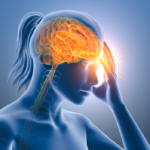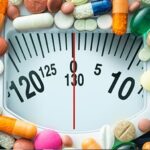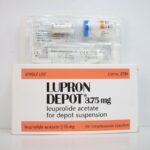How to Use Medications Properly During a Fast?

What’s a Fast?
Simply put, it means you stop eating completely, or almost completely, for a certain stretch of time. A fast usually lasts from 12 to 24 hours, but some types continue for days at a time. In some cases, you may be allowed water, tea, and coffee, or even a small amount of food during the “fasting period.”
Despite its recent surge in popularity, fasting is a practice that dates back centuries and plays a central role in many cultures and religions especially among the Jews, Muslims, and Christians. Fasting has been shown to have many health benefits, from increased weight loss to better brain function.
Fasting and Medications
Taking medications during a fast can be a daunting task because questions often arise as to the right way of taking them and how to properly comply with the treatment regimen. The following easy to use and remember tips can help you take and use your medications properly during a fast:
- In case of a medicine that is taken once per day that does not need to be taken in the morning and that is not affected by food, it may be taken around the time of the meal eaten prior to the beginning of the fast, and again the next day at the end of the fast, upon consultation with your doctor.
- It is important to remember that there are medicines that should not be stopped at once, because suddenly stopping them could cause loss of control of the condition, an unwell feeling, and on occasion, even danger to life.
- In case a change to the regimen of medicines is needed during the fast, this could affect their efficacy or the appearance of side effects. It is recommended to consult with a pharmacist or a physician in order to prevent or minimize these effects.
- Special attention should be paid to patients receiving medicines for the treatment of diabetes, which affect blood sugar levels (whether by injection or taken by mouth), since taking these medicines without food could cause a dangerous reduction in blood sugar levels.
- Fasting could cause dehydration, which could lead to reduced blood pressure, impaired electrolyte balance in the body, which could affect heart function and kidney damage. The decreased blood pressure caused by dehydration could intensify the effect of medicines for the reduction of blood pressure and of other medicines that affect blood pressure. Note that some of the medicines taken for the treatment of blood pressure are diuretic and could in themselves cause dehydration and an altered electrolyte balance in the body. Furthermore, disturbances to the electrolyte balance caused by the fast could worsen side effects of certain medicines.
- Patients who suffer from intolerable headache during the fast may use suppositories containing paracetamol, as per the dosages and guidelines that appear in the patient information leaflet
- Remember that for some medicines taken by mouth to treat pain, the recommendation is to take them on a full stomach in order to reduce stomach irritation and damage. If needed, there are anti-pain medicines that come as rectal suppositories. Take into account the fact that some medicines for the treatment of pain could, if taken when one is dehydrated, cause kidney damage. It is therefore important to consult with a physician or a pharmacist prior to the fast in order to select appropriate anti-pain treatment if needed.
- As a rule, medicines that are not administered by mouth, such as ointments and creams, inhalations to the respiratory tract, suppositories etc., may be taken during the fast. However, the doctor should be consulted to confirm their suitability for patient.
- It is important to remember that there are many additional medicines not mentioned in the points listed here. Consult your doctor for specific advice.
- In all events, upon the appearance of signs of physical distress indicating dehydration, such as extreme headaches, dizziness or fainting, nausea, vomiting, blurred vision, and at a more severe stage, difficulty urinating and damage to other bodily systems, it is necessary to start drinking water in small quantities.
As a general medication safety rule, always:
- Find out the name of the medication prescribed for you.
- Make sure you know when you have to take your medication, and whether it should be taken with or without food or alcoholic beverages.
- Find out what condition your medication is prescribed for.
- Ask your pharmacist if you are not sure about the medication you have received! At times the medication you receive will be replaced by a different brand with the same active ingredient (a generic drug).
- Read the label every time you take your medication and follow the instructions. If you are not sure – ask!
- Make sure to take your medication at regular hours, e.g. after brushing your teeth in the morning, unless otherwise instructed by your physician or pharmacist.
- Do not change the way you take your medication or stop using it without first consulting with your physician.
- Make sure to take the exact prescribed dose; do not take another dose (if for example you missed a dose) or less than the prescribed amount. Over dosing or missing a dose can affect the treatment’s efficacy and or can harm you.
- Inform your physician and pharmacist about other medications or food supplements that you take.
- Find out which side effects might arise from the treatment with your medications.
- Do not drive if your medication causes dizziness or tiredness.
- Make sure not to accumulate drugs. Excess medications should be properly disposed of at your local pharmacy.
- Do not store medications in your bathroom. Make sure your medications are stored according to the storage condition that appears on the medication’s package or leaflet. Refrigerate if necessary and keep away from children.
- Make sure not to use a medication after its expiration date. If the expiration date is stated by month and year only – the expiry date refers to the last day of that month and year.
- Identify your medication before taking it. Do not take your medication in the dark, only when the light is on.
- If you forget to take your medications…. Ask your pharmacist for advice regarding devices to help you remember to take your medications.
- Please remember that proper use of your medications will optimize the results of your medical condition.
- Purchase medications only at a licensed pharmacy. If you are not sure – report to the ministry of health.
For any other information, consult a doctor or pharmacist





